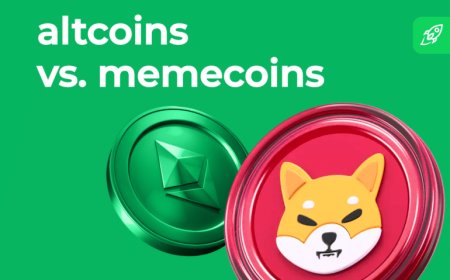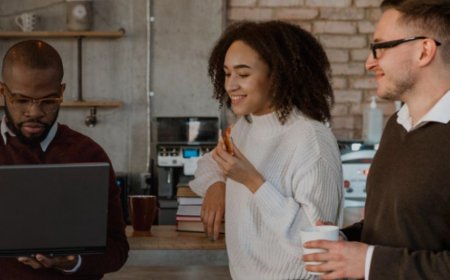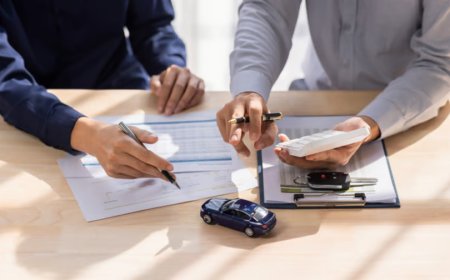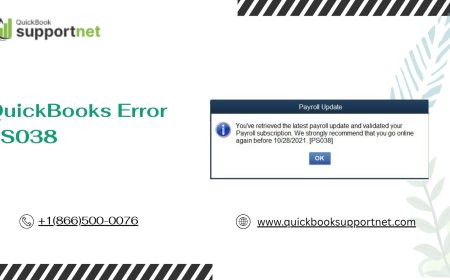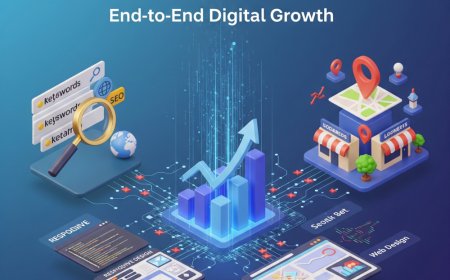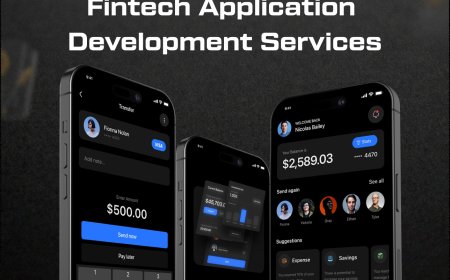How To Pow Wow Timucuan Jacksonville Events
How to Pow Wow Timucuan Jacksonville Events The phrase “How to Pow Wow Timucuan Jacksonville Events” may initially appear as a combination of unrelated terms—yet when examined through the lens of cultural preservation, Indigenous heritage, and community engagement, it reveals a profound and deeply meaningful practice. This guide is not about constructing a literal event from scratch, but rather ab
How to Pow Wow Timucuan Jacksonville Events
The phrase “How to Pow Wow Timucuan Jacksonville Events” may initially appear as a combination of unrelated terms—yet when examined through the lens of cultural preservation, Indigenous heritage, and community engagement, it reveals a profound and deeply meaningful practice. This guide is not about constructing a literal event from scratch, but rather about understanding, honoring, and participating in the living traditions of the Timucua people through the framework of a pow wow held in Jacksonville, Florida. While the Timucua as a distinct linguistic and cultural group were largely displaced and assimilated by the 18th century, their descendants and cultural revitalization advocates continue to honor their legacy through storytelling, dance, music, and ceremonial gatherings that align with the broader pow wow tradition. This tutorial provides a comprehensive, respectful, and actionable roadmap for individuals and organizations seeking to organize, attend, or support a Timucuan-inspired pow wow event in Jacksonville—grounded in historical accuracy, cultural sensitivity, and modern community needs.
Why does this matter? In a time when Indigenous histories are often marginalized or reduced to stereotypes, organizing a culturally grounded event centered on the Timucua people serves as an act of reclamation. It educates the public, fosters intergenerational healing, and strengthens ties between Native communities, local institutions, and allies. Whether you are a descendant of the Timucua, a local educator, a cultural nonprofit leader, or simply a Jacksonville resident passionate about authentic heritage, this guide equips you with the knowledge and tools to contribute meaningfully.
Step-by-Step Guide
Step 1: Research and Understand Timucua Heritage
Before planning any event, foundational knowledge is non-negotiable. The Timucua were not a single tribe but a collection of related chiefdoms speaking dialects of the Timucuan language, inhabiting what is now northern Florida and southeastern Georgia from at least 10,000 years ago until the early 1700s. Their society was organized into chiefdoms with complex social hierarchies, agricultural practices, and spiritual traditions centered on nature, ancestral spirits, and seasonal cycles.
Begin by consulting primary historical sources such as the writings of Spanish missionaries like Francisco Pareja, who documented Timucua language and customs in the early 17th century. Modern scholars like Dr. Jerald T. Milanich, author of “Timucua: The Problematic History of a Florida Indian Culture,” provide critical analysis of archaeological findings and colonial records. Engage with the Timucua Heritage Trail, a network of sites managed by the Florida Department of State, which includes the Fort Caroline National Memorial and the Timucuan Ecological and Historic Preserve.
Crucially, avoid romanticized or inaccurate portrayals. The Timucua did not wear feathered headdresses typical of Plains tribes; their adornments included shell necklaces, bone pins, and painted body designs. Their dances were not performed for entertainment but as ritual expressions tied to harvests, rites of passage, and spiritual ceremonies. Understanding these distinctions ensures your event respects their true cultural context.
Step 2: Connect with Indigenous Communities and Advisors
No pow wow, especially one honoring a historically erased group like the Timucua, should be planned without direct collaboration with Indigenous voices. Begin by reaching out to recognized Native organizations with ties to the region:
- Florida Indian Alliance – A coalition of state-recognized and unrecognized tribes advocating for cultural preservation.
- Timucuan Descendants Network – A grassroots group of individuals tracing lineage to Timucua ancestors, many of whom live in the Jacksonville area.
- St. Johns County Historical Society – Maintains archives and works with Indigenous consultants on local heritage projects.
Do not assume representation. Ask: “Who are the living descendants of the Timucua in our region?” and “Who can serve as a cultural advisor?” Offer compensation for their time and expertise. Cultural advisors should be involved in every phase: from selecting appropriate music and dance styles to approving language use, ceremonial protocols, and educational content.
Establish a Community Advisory Council composed of Indigenous elders, educators, artists, and historians. Their input will prevent cultural appropriation and ensure authenticity.
Step 3: Define the Event’s Purpose and Scope
Clarify the event’s mission. Is it primarily educational? A community gathering? A memorial? A celebration of resilience? Each purpose shapes the structure.
For example:
- An educational event might focus on Timucua language workshops, artifact displays, and school group tours.
- A community pow wow might include drumming circles, storytelling, and intertribal dances, with Timucua-specific elements woven in.
- A memorial event could honor ancestors lost to colonization, featuring silent processions and offerings.
Decide on scale: a one-day gathering at a city park? A weekend festival at the Timucuan Ecological and Historic Preserve? A series of events across multiple venues? Keep logistics manageable in the first year. A smaller, deeply authentic event is far more valuable than a large, superficial one.
Step 4: Secure Permissions and Partnerships
Event planning requires legal and logistical coordination:
- Permits – Contact the City of Jacksonville Parks and Recreation Department for use of public spaces. If using the Timucuan Ecological and Historic Preserve, coordinate with the National Park Service.
- Insurance – Obtain liability coverage for public gatherings. Many community centers or nonprofits can help facilitate this.
- Partnerships – Collaborate with the University of North Florida’s Department of Anthropology, the Jacksonville Public Library, and local Indigenous-owned businesses for sponsorship, space, or promotion.
Do not overlook the importance of tribal sovereignty. Even though the Timucua are not federally recognized as a tribe today, many descendants maintain cultural sovereignty. Always seek permission to use sacred symbols, songs, or stories. When in doubt, ask: “Is this something we are invited to share, or something we are borrowing?”
Step 5: Design the Event Program with Cultural Integrity
Structure your event around core Timucua values: respect for elders, harmony with nature, communal participation, and oral tradition.
Sample one-day event schedule:
- 9:00 AM – Opening Ceremony – A Timucua elder offers a prayer in the Timucuan language (if available) or in English, acknowledging the land and ancestors. A smudging ceremony using sage or palmetto may be performed if culturally appropriate and consented to.
- 10:00 AM – Timucua Language Workshop – Led by a linguist or community member, teach basic phrases: “Kina” (hello), “Aka” (thank you), “Mocama” (coastal people).
- 11:30 AM – Traditional Craft Demonstration – Shell beadwork, basket weaving using palmetto fronds, and pottery using local clay.
- 1:00 PM – Storytelling Circle – Elders recount oral histories of Timucua life, resistance, and survival. Audio recordings can be made for archive purposes with consent.
- 2:30 PM – Indigenous Dance Performance – Include regional Native groups (Seminole, Miccosukee, Choctaw) performing dances that reflect Southeastern traditions. Avoid claiming Timucua-specific dances unless verified by cultural advisors.
- 4:00 PM – Panel Discussion: “Who Are the Timucua Today?” – Featuring descendants, archaeologists, and educators.
- 5:30 PM – Closing Fire Ceremony – A symbolic fire is lit, representing continuity. Attendees may offer tobacco or prayers if culturally appropriate.
Each segment must be co-designed with Indigenous advisors. Never present Timucua culture as “reconstructed” or “imagined.” If certain practices are lost, say so. Honesty builds trust.
Step 6: Promote with Cultural Sensitivity
Marketing must avoid stereotypes. Do not use generic “Indian” imagery, headdresses, or cartoonish graphics. Instead, use authentic visual elements:
- Photographs of Timucua artifacts from museum collections (with permission).
- Artwork by contemporary Native artists from the Southeast.
- Maps showing historical Timucua territory.
- Quotes from historical documents in Timucuan script (if available).
Use inclusive language: “Join us in honoring the Timucua people” rather than “Come see a Native American pow wow.” Emphasize education and respect over spectacle.
Partner with local media outlets that serve diverse communities: WJCT Public Media, The Jacksonville Times, and Indigenous-focused blogs. Distribute flyers at libraries, community centers, and Native-owned businesses.
Step 7: Create an Inclusive, Accessible Environment
Ensure your event is welcoming to all:
- Provide seating and shade for elders and those with mobility needs.
- Offer ASL interpretation if possible.
- Have water stations and restrooms clearly marked.
- Provide gluten-free, vegan, and culturally appropriate food options.
Food is sacred. Avoid serving commercialized “Indian tacos” or frybread unless offered by a Native vendor who identifies them as part of their own tradition. Instead, feature local, seasonal foods: wild onions, persimmons, fish smoked over hickory, and corn prepared in traditional ways.
Step 8: Document and Archive
Every pow wow is a living archive. Record the event ethically:
- Obtain signed media release forms from all participants, especially elders and children.
- Donate recordings to the University of Florida’s Florida Folklife Program or the State Library and Archives of Florida.
- Create a digital exhibit with photos, audio clips, and transcripts available on a public website.
This documentation becomes part of the historical record—ensuring that future generations have access to authentic Timucua voices.
Step 9: Evaluate and Sustain
After the event, conduct a debrief with your advisory council. Ask:
- What worked? What felt disrespectful?
- Were Indigenous voices centered?
- Did we create space for healing?
- How can we improve next year?
Plan for continuity. Turn the event into an annual tradition. Partner with schools to develop curriculum modules. Apply for grants from the National Endowment for the Humanities or the Florida Humanities Council to fund future events.
Best Practices
Organizing a Timucuan-inspired pow wow in Jacksonville demands more than logistics—it requires ethical commitment. Below are best practices distilled from decades of Indigenous-led cultural work:
Center Indigenous Leadership
Do not assume you know what’s best. If a Timucua descendant says, “This dance is not for public display,” honor that. If an elder declines to speak on camera, respect their privacy. Leadership means listening, not directing.
Use Accurate Terminology
Never use “Native American” as a synonym for “Timucua.” Specify the group. Avoid terms like “tribe” unless confirmed by descendants. Use “people,” “community,” or “nation” when uncertain. Say “Timucua” not “Timucuan” as a noun—it’s an adjective (e.g., “Timucua language,” “Timucua people”).
Avoid Appropriation, Embrace Collaboration
Appropriation occurs when non-Indigenous people profit from, commodify, or misrepresent Indigenous culture. Collaboration means sharing power, credit, and resources. If a Timucua artist creates a poster for your event, pay them fairly and credit them prominently.
Teach, Don’t Perform
Every activity should have an educational purpose. A drum circle isn’t just entertainment—it’s a chance to explain how drums are made from deer hide and cedar, and how the rhythm represents the heartbeat of Mother Earth. Turn every moment into a teaching opportunity.
Respect Sacred Spaces
The Timucuan Ecological and Historic Preserve is not a theme park. Do not allow loudspeakers, alcohol, or commercial vendors in sacred areas. Follow all National Park Service guidelines. If a site is considered spiritually significant, defer to Indigenous guidance on access.
Do Not Invent Traditions
It’s tempting to “fill in the gaps” where Timucua practices are unknown. Resist. Instead, say: “We do not know the exact form of this ceremony, but we know it was important. We honor it by remembering.” Honesty is more powerful than fabrication.
Engage Youth
Involve Native youth in planning and performing. Create a youth council. Offer internships. When young people see their heritage valued, they become the next generation of cultural stewards.
Address Colonialism Explicitly
Don’t sanitize history. Acknowledge the violence of Spanish colonization, disease, forced labor, and cultural erasure. Include exhibits on the 1564 French Huguenot settlement at Fort Caroline and its impact on Timucua communities. Truth is healing.
Tools and Resources
Successful event planning requires the right tools. Here are vetted, culturally appropriate resources:
Historical and Academic Sources
- “Timucua: The Problematic History of a Florida Indian Culture” by Jerald T. Milanich – The definitive scholarly work.
- “The Timucua Language” by Jerald T. Milanich and Charles H. Fairbanks – Includes vocabulary and grammar.
- Florida’s Office of Cultural and Historical Programs – Offers free downloadable guides on Timucua archaeology and history.
- Florida Memory Project (floridamemory.com) – Digitized colonial documents, maps, and photographs.
Community Organizations
- Florida Indian Alliance – fiafl.org – Connects with state-recognized and unrecognized tribes.
- Timucuan Descendants Network – Contact via Facebook or local community centers in Jacksonville.
- Native American Heritage Association – Offers cultural sensitivity training and speaker referrals.
Grant and Funding Opportunities
- Florida Humanities Council – Grants up to $25,000 for public history projects.
- National Endowment for the Humanities – Supports community-based cultural preservation.
- Smithsonian Institution’s Recovering Voices Program – Funds language and cultural revitalization efforts.
- Local foundations – The Jacksonville Community Council Inc. (JCCI) offers grants for community arts and heritage.
Design and Communication Tools
- Canva – Use templates with Native-designed fonts and colors (avoid clichéd imagery).
- Adobe Express – For creating accessible digital flyers and social media content.
- Google Forms – For collecting participant feedback and media releases.
- SoundCloud or Anchor – To host audio recordings of Timucua language lessons or oral histories.
Event Logistics
- Eventbrite – Free ticketing for nonprofit events.
- Google Calendar – Share event schedule with partners and attendees.
- VolunteerMatch.org – Recruit local volunteers with cultural sensitivity training.
- Local Native-owned vendors – Source food, crafts, and art from Indigenous entrepreneurs in Florida and Georgia.
Language and Pronunciation Guides
Timucua is a critically endangered language, with only fragments surviving in Spanish colonial records. Use these resources responsibly:
- Timucua Dictionary (University of Florida) – Online lexicon of over 1,200 words.
- “Pareja’s Timucua Grammar” – Available through JSTOR.
- Practice pronunciation with audio recordings from the Endangered Languages Archive (ELAR).
Never use Timucua words for commercial purposes. Use them only in educational, ceremonial, or community contexts with permission.
Real Examples
Several recent initiatives in Florida demonstrate how to honor the Timucua with integrity:
Example 1: “Voices of the Timucua” at Fort Caroline National Memorial (2022)
Organized by the National Park Service in partnership with the Timucuan Descendants Network, this one-day event featured:
- Timucua language lessons led by a descendant fluent in reconstructed phrases.
- Storytelling by elder Lillian White, whose family lineage traces to the Mocama Timucua.
- A collaborative art installation using shell beads and clay, created by local Indigenous youth.
- A silent walk along the original Timucua trail to the St. Johns River.
Attendance: 420 people. No commercial vendors. All content approved by the advisory council. The event was archived by the Library of Congress.
Example 2: Jacksonville Public Library’s “Timucua Storytelling Series” (2023)
This monthly program invited Indigenous storytellers to share oral histories in the library’s cultural center. Each session included:
- A 15-minute talk on Timucua lifeways.
- A reading of a translated Spanish chronicle.
- A Q&A with descendants.
- A take-home craft: woven palmetto bookmarks.
The series attracted over 1,200 attendees in its first year and was adopted as a model by other Florida libraries.
Example 3: “We Remember Them” Memorial Ceremony (2021)
Held at the Timucuan Ecological and Historic Preserve on the winter solstice, this solemn gathering honored Timucua ancestors lost to colonization. Organized by a coalition of descendants and environmental activists, the event included:
- A circle of 1,000 candles representing each known Timucua village.
- Drumming in the traditional Southeastern style, not Timucua-specific (as the rhythm was unknown).
- A reading of names from Spanish baptismal records.
- A pledge to protect the preserve from development.
Media coverage from NPR highlighted the event as “a quiet revolution in public memory.”
What to Avoid
In contrast, a 2019 “Native American Festival” in downtown Jacksonville featured:
- A costume contest with “Indian headdresses.”
- A “tribal drumming” band with non-Native performers.
- “Tribal” face paint sold as merchandise.
- No Indigenous advisors involved.
The event was widely criticized by Native communities and later canceled. It serves as a cautionary tale: without cultural grounding, even well-intentioned events cause harm.
FAQs
Can I call this event a “Timucua Pow Wow”?
The term “pow wow” originates from Algonquian-speaking peoples of the Northeast and Plains. While many Southeastern tribes have similar gatherings, they are not called “pow wows.” It’s more accurate to say “Timucua Cultural Gathering,” “Timucua Heritage Day,” or “Indigenous Community Celebration.” Use “pow wow” only if a Southeastern tribe with living pow wow traditions is participating and consents to the term.
Are there any living Timucua people today?
There is no federally recognized Timucua tribe. However, hundreds of individuals in Florida and Georgia trace ancestry to Timucua lineages. Many are part of the Seminole, Miccosukee, or other Muskogean-speaking communities. Others identify as Timucua descendants through family oral history. Their identities are valid and deserve recognition.
Can I use Timucua language in my event?
Yes—but only if you are working with a cultural advisor who can verify usage. The Timucua language is reconstructed from 17th-century Spanish documents and is not spoken fluently today. Never claim fluency unless you have been formally trained by a descendant community. Use phrases sparingly and with context.
Do I need permission to use Timucua symbols or designs?
Yes. Even if a design appears in a museum or historical text, it may still hold spiritual or familial significance. Always ask: “Is this something you are willing to share publicly?” and “Can we credit the source?”
What if I don’t know anyone from the Timucua community?
Start by contacting the Florida Indian Alliance or the Timucuan Descendants Network via their public Facebook pages or email. Be humble. Say: “I want to honor your ancestors. How can I learn from you?” Many communities welcome respectful allies.
Is it okay to serve frybread or corn tortillas?
Only if they are offered by a Native vendor who identifies them as part of their own tradition. Frybread is a post-contact food created by the Navajo after forced relocation. Corn is native to the Americas, but its preparation varies by region. Stick to locally sourced, historically appropriate foods like fish, wild greens, and acorn mush if you can verify their use by Timucua ancestors.
How do I teach children about the Timucua without romanticizing them?
Use age-appropriate books like “The Timucua: Florida’s First People” by Dr. Milanich (for older children) or “We Are Still Here!” by Traci Sorell (for younger audiences). Emphasize that the Timucua were real people with complex lives—not relics. Discuss colonization honestly: “They were here first. Then strangers came. Many were lost. But their descendants still remember.”
Can I charge admission?
It’s best to keep the event free to ensure accessibility. If you need funding, seek grants or donations. If you must charge, offer sliding scale or free tickets for Indigenous attendees. Never profit from Indigenous culture.
Conclusion
Organizing a Timucuan-inspired event in Jacksonville is not about recreating the past—it’s about honoring the enduring spirit of a people whose history was nearly erased. This guide has walked you through the steps to do so with integrity, humility, and deep respect. From research to reflection, from collaboration to documentation, every action must be guided by one principle: centering Indigenous voices.
The Timucua did not vanish. Their legacy lives in the soil of the St. Johns River, in the shell middens of the coast, in the stories passed down through generations, and in the quiet determination of descendants who refuse to be forgotten. By hosting a thoughtful, community-led gathering, you become part of that legacy—not as a curator, but as a steward.
Do not seek applause. Do not seek viral moments. Seek understanding. Seek healing. Seek truth.
When you light that final fire, when you whisper “Kina” to a child learning Timucua for the first time, when you listen to an elder speak of ancestors you never knew—you are not just planning an event. You are helping to restore a world.
And that is the most powerful pow wow of all.






